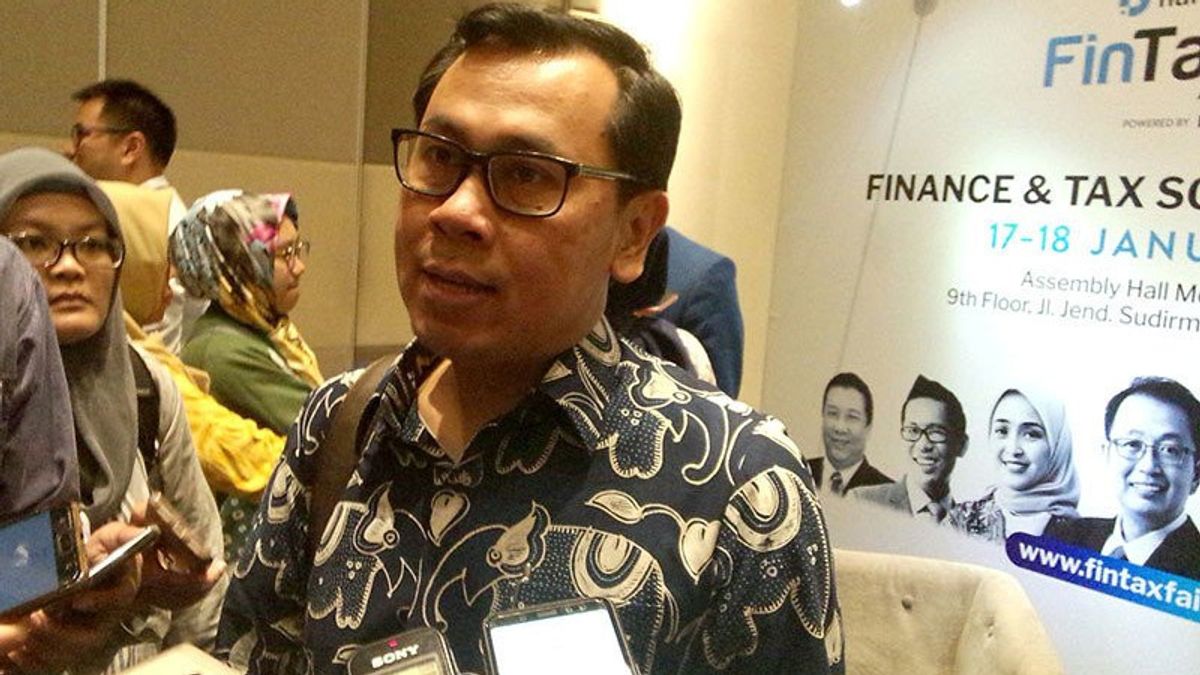JAKARTA – Special Staff of the Minister of Finance for Strategic Communication Yustinus Prastowo stated that public awareness to exercise tax rights and obligations is very important in the life of the state.
This is because taxes are the main instrument of revenue to collect state budget revenues.
Therefore, Sri Mulyani's subordinates revealed that it takes a high awareness of taxpayers (WP) to be able to work together so that the revenue targets that have been set can be achieved properly.
“Achieving optimal tax revenue targets must be accompanied by high taxpayer compliance. As long as compliance is not high, never expect optimal tax revenue,” he said in a virtual discussion at the end of last week, July 31.
According to Yustinus, there are two major challenges in the tax sector in Indonesia.
First, to build full awareness in the community to understand that the implementation of tax rights and obligations has a strategic role.
Because every citizen has the right to contribute to building the country through taxation.
Likewise with the obligations attached to taxpayers who are expected to play a role through tax contributions.
"The second is how to build a credible authority so that people concretely want to pay taxes," he said.
According to VOI records, tax revenues until the close of the first semester of 2022 showed a steady performance with a book of Rp. 868.3 trillion, an increase of 55.7 percent compared to the first semester of 2021, which amounted to Rp. 557.8 trillion.
At the same time, this figure already accounts for 58.1 percent of the target of Presidential Regulation 98/2022 which aims at Rp1,485 trillion.
To note, the slick notch in the first half could not be separated from the significant contribution of the commodity sector, which experienced price increases throughout this year. In addition, the recovery of the business world during the pandemic also supports state revenues.
Meanwhile, tax compliance in Indonesia is still considered low, which is reflected in the 2021 tax ratio of 9.1 percent. This level is still far below the average for OECD member countries, which is around 34 percent.
"Our challenge, I think, is educating the public. This is indeed not easy when we talk about taxes, so it is necessary to encourage how the tax benefits are for development and for all of us. Well, this is usually what makes people interested that the money paid turns out to be a lot of results," he concluded. Justin.
The English, Chinese, Japanese, Arabic, and French versions are automatically generated by the AI. So there may still be inaccuracies in translating, please always see Indonesian as our main language. (system supported by DigitalSiber.id)













